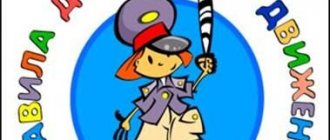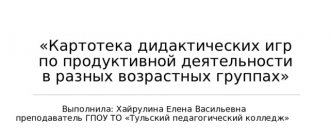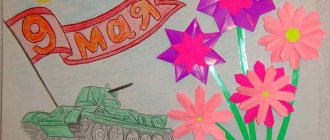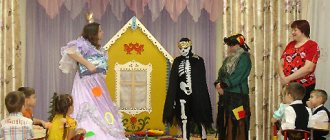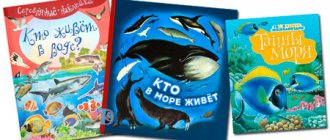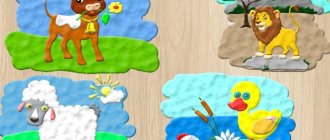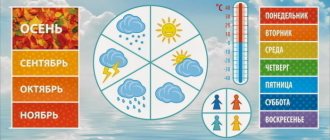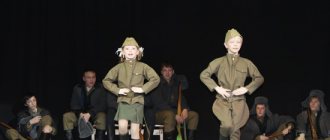Games 30. Plant
First of all, you need to make a plant - a tree, a flower - from any available materials. Then the child composes a fairy tale about him. The main thing is that in the story the child describes in detail how the plant feels - is it comfortable or is something bothering it.
Through these metaphors, an adult can understand what is bothering the child. If there is a cause for concern, ask your child what you can do to help the plant - build a fence, call a fairy, plant other trees. This way the baby will use the example of a fairy tale to cope with his anxieties.
Games 31. Face games
In children who have suffered some unpleasant events in life, a frozen mask may appear on their face and emotions disappear. You can motivate your child in several ways - invite him to play tricks, make funny faces with him, or organize a home theater.
Games 32. Simple holidays
Allow your baby to feel the holiday in your life as often as possible. Try to turn every simple event into something bright and unusual. For example, the festival of making the bed, washing, the festival of lunch. Be sure to record any of your child’s achievements, write them down or draw them - this motivates and builds confidence in yourself and your abilities.
Games 33. Color therapy
If your child often returns to unpleasant events in the past, focus his attention on the current day, for example, come up with a specific color for each day of the week and try to stick to it. For example, let Monday be blue - pick up such clothes, look for blue objects around.
Games 34. Schedule
To stabilize a child’s condition after a stressful situation, it is necessary to structure his daily routine, draw up a schedule, and decorate it. The kid must monitor its implementation. On the one hand, it teaches discipline, and on the other, it distracts from unpleasant thoughts.
Advice! Anxious children prone to stress intuitively choose outdoor games where they need to jump. This helps relieve tension and feel supported. Create an area for your child where he can jump safely and happily.
Conflict situations sometimes occur between children, and here play becomes critically important, since with its help the child relieves stress and relaxes . Of course, games should be appropriate for the child’s age and development, be diverse and useful. This is what we will talk about in our material.
Competitions in kindergartens
Every year, another form of open classes is planned in preschool institutions - these are competitions between teachers in the district or city. In this case, the preparation is more thorough, both for children and teachers.
If it is a music competition, then an interesting dance or song number is prepared; if physical education is being held, then the same uniform is purchased for the children, and an original plot is invented. For winning the competition, the teacher receives a certificate or cash prize.
How do 6-7 year old children develop?
At this age, the baby’s thinking abilities enter a new, better stage of development.
By age 6, most children:
- master reading, writing, counting to 20;
- understand the simplest time intervals;
- focus longer on one solution to one logical problem;
- their reasoning becomes more meaningful;
- understand information better by listening.
What games are useful at this age?
For a preschooler, different forms of games will be useful.
Psychologists recommend involving children in the following game formats:
- child-initiated play;
- play initiated by an adult;
- a traditional game when both a child and an adult can take the initiative.
From the point of view of benefits, the most significant games are those offered by adults, since in this case the child finds himself in a learning situation, gets acquainted with new words, concepts and can make this situation manageable.
As for choosing a specific game format, it all depends on the situation. For the street, outdoor games are selected that contain an element of sports. At home, you can play board games or role-playing games, or assemble a construction set.
1. Outdoor games develop coordination, strength, endurance, and reaction speed. At the age of 6-7 years, the game lasts about half an hour.
2. Board games help brighten up your leisure time when the weather is bad outside. With the help of cubes, puzzles, figures, cards, the child improves his skills - logic, spatial thinking, social interaction, speech, concentration, will.
There are a huge number of board games - walkers, puzzles, cubes, mosaics, construction sets, flashcards, strategies.
3. Educational games - in this case we are talking about the targeted development of a specific skill or ability, for example, speech, gross motor skills, intelligence, imagination.
The use of such games prepares fertile ground for the further development of the child’s creative abilities and talents. The training program is structured from simple to complex, but the conditions of each task should be slightly ahead of the child’s developmental level.
Free clubs – where to find them and how to enroll your child?
According to a 2022 survey conducted by the ONF, financial difficulties became the main reason for abandoning children's clubs; they were cited by 28% of parents surveyed. Additional classes for a child monthly cost from 6.3 to 20 thousand rubles, depending on the level of wealth of the family and place of residence. At the same time, according to sociologists at the Higher School of Economics, almost half of parents would prefer not to pay for clubs and sections.
In this regard, many are interested in whether there are free programs for additional children's education and where to find them.
Clubs at school
Many schools provide additional education programs for students free of charge, or the cost of classes is relatively low. As a rule, they are conducted by the teachers themselves.
Usually these are clubs for aesthetic, sports, musical and patriotic education, as well as foreign languages, but there are also other areas - for example, robotics, cooking, theater studio.
The list of available destinations can be found on the website of the institution the child attends.
Free classes in budget children's art schools, SSOR
In a budgetary organization of additional education - for example, a music or art school, a children's art school - you can study for free, subject to passing a competitive selection.
Therefore, to study in creative areas, most likely, you will first have to spend money on preparatory classes, and an already prepared child will be able to pass the competition.
Admission to an Olympic reserve sports school or a children's and youth sports school is also based on selection. Coaches look at the child’s anthropometric data, assess his prospects in a particular sport, and study the presence or absence of medical contraindications.
Free clubs in budget centers of additional education and palaces of creativity
Such institutions provide a wide selection of clubs and sections in a variety of areas, which can be attended for free. Enrollment there begins at the beginning of the school year. Depending on the region, a student can attend from one to several clubs and sections without paying.
The list of available options and conditions for free training can be found on the website of the city or district administration, the department of education, the municipal portal of additional education, on State Services, and can also be found out during a personal visit to the organization.
State co-financing
In the regions of Russia, an experiment is underway to introduce certificates for personalized financing of additional education services for children (PFSE). Under the PFDO program, you can receive a special certificate with which parents can pay for their child’s classes.
Each region has its own list of destinations available with certificates. You can get acquainted with them and sign up on the PFDO portal.
Preparing the teacher for the lesson
To conduct an activity that is interesting for children, the teacher does a lot of preparatory work - selects visual aids (paintings, photographs, slides or toys, fruit models or theater figurines), fiction (riddles, proverbs, sayings, poems or short stories), prepares demonstration and handout materials. material on a given topic.
Some activities require preliminary preparation, for example, planting seeds and watching how a sprout breaks through the soil. For a visual arts class, you need to lay out sets of paints and brushes on tables, pour water into cups, and draw a sample or a schematic representation of an object. How many parts need to be cut out before applique? This is a lot of work that takes a lot of time the evening before class.
Content:
- What children's clubs are there? Creative clubs
- Sports activities
- Intellectual activities
- Activities for preschool children
- Useful educational apps for children 2-10 years old
- Choosing a club for your child. FAQ
How to enroll a child in clubs through Gosusugi?
An application for a child’s education can be written directly to the selected organization. This service is also available on the State Services portal for registered users living in Moscow.
How to get it:
- On the main page of the portal, select the “Family, Children” or “Education, Study” section.
- Select the “Enroll in clubs and sections” tab (the portal will redirect you to the mos.ru website)
- Fill out the form, based on it the portal will offer options.
- Choose a direction.
- Select the start date for classes or entrance exams.
- Fill out the form provided.
- Submit your application for consideration.
Application review period is 1 business day. Registration may be denied if there are no available places at the selected institution.
First lessons
- We learn to count - we play the first mathematical games;
- We study geometric shapes;
- Learning colors;
- Playing with words and letters;
- We teach who lives in which house (a squirrel - in a hollow, a dog - in a booth, a mouse - in a hole, etc.);
- We teach who eats what (monkey - bananas, hare - carrots, mouse - cheese, etc.)
- Getting to know the seasons;
- We learn to classify objects into groups (clothing, dishes, transport, furniture, etc.), find what is superfluous in a group of objects;
- Remember the names of the fingers;
- We look through Doman’s cards (we study simple facts using them) or other didactic material that expands the child’s horizons;
Excursions with children
Excursions are considered a special type of group classes in preschool educational institutions. This could be an organized trip to a park or to a road intersection, to a store or to a river. The excursion also has a clear structure. The first part is the preparatory part, which the teacher does independently. The place of the excursion is chosen, who will accompany the group of children, and organizational issues are resolved.
Next comes the main part - a trip with the children to the chosen place. During the excursion, observations are made, children are asked questions, and the selected topic is discussed. The teacher uses verbal didactic games. You can organize the collection of natural materials for further crafts.
After returning to the territory of the preschool institution, what was seen is consolidated. This could be a simple conversation, an exchange of impressions, or displaying what was seen in drawings, or making an album with a herbarium.
